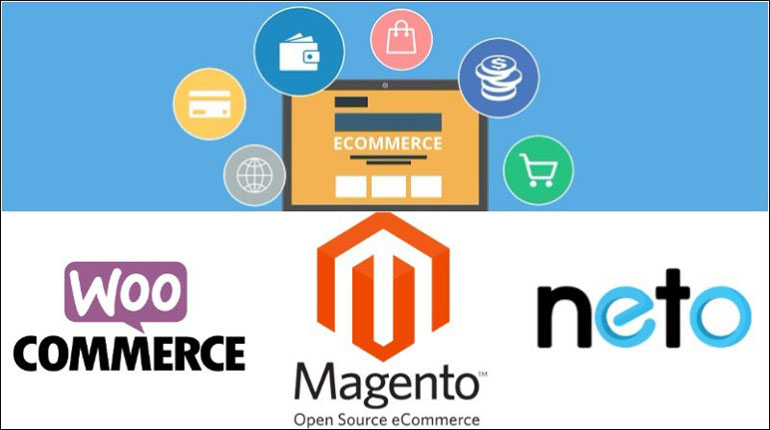Choosing the right eCommerce platform for a new online store will have a significant impact on your expansion and growth down the track.
However, don’t be put off by the choices. In an online world, things change daily, and it’s not so much your ability to choose well at the beginning as it is your ability to keep on top of everything to do with e-commerce development and adapt to an ever-changing marketplace along the way.
Every eCommerce store requires its own unique set of tools, features, designs, and content to satisfy customers and bring repeat business. Some startups are on a tight budget and need to get up and running quickly, while others take months of planning and development.
But, before you choose your platform, here are some quick questions to help guide you in your decision.
10 Questions You Should Ask Yourself
- Methods of payment do you want to accept (Paypal, Credit Card, Bank, etc.)?
- Are you offering Products or Services?
- How many products or services do you think you will be offering?
- Will you require scope for product or service expansion?
- Do you plan to sell locally, nationally, or internationally?
- Will Your Products require user input like size, color, comparisons, etc.?
- Who will build the site – you or a developer?
- Who will maintain the site – you are a Digital Agency?
- Are you a Wholesaler or Retailer?
- Are you selling Affiliate Products or will you keep Stock?
Take some time to answer those questions, and you are halfway home in choosing the best platform for your online store.
Choosing the best eCommerce platform for startups can make or break your business. That’s the main reason why it is one of the most important factors to be considered when starting an online shopping website.
Once you’ve answered the questions above, it will be much easier to identify the features that you need for your e-commerce business.
Woo Commerce
Woo Commerce is a platform that was first made available in 2011. It powers over 30% of all online stores and is extremely popular and well-maintained.
Part of its attraction is that it fits, and is designed to work with, WordPress.
Woo Commerce is a free WordPress plugin jam-packed with regular updates to ensure the website runs smoothly and hassle-free.
It enables robust expansion and upgrading to more sophisticated services but is also helpful for beginners with little experience in design and function.
Who is Woo Commerce suitable for?
Woo Commerce is a great option for those new to the industry and who need to operate the store themselves, rather than outsource the site’s management.
It is relatively easy to use, customizable, and intuitive and comes with plenty of pre-made plugins and themes ready for installation.
Neto
Neto is a free eCommerce software that offers various services including e-commerce software, designing a website, launching eBay plans, custom development, and providing training to those who will handle the online shopping platform.
Neto offers a versatile way of selling: selling on eBay, online shops, and physical stores.
Neto integrates with MYOB and allows you to manage your accounting, payroll, and CRM. It will also enable you to work offline and through services that utilize many additional MYOB Modules.
Neto also allows shipping more by doing less. With this type of feature, the business owner can handle the shopping website in a hassle-free manner while utilizing the wonders of Neto.
Who is Neto suitable for?
Neto works best for small to medium-scale businesses that need a safe and secure way of shopping.
Magento
Magento is highly regarded as one of the most powerful e-commerce platforms these days. Also, Magento is a flexible platform that works well for large-scale online businesses.
Magento offers both free, community-based plans and those at an enterprise level.
Magento works best for digital commerce, retail commerce, and order management, and provides a reliable industry solution.
Magento’s interface is easy to use, and it comes with tutorial videos and documentation. It has a complete installation wizard too.
However, Magento’s difficulty increases when you want to start adding extensions to your site, so expert support may sometimes be required.
Who is Magento suitable for?
Magento is a platform equipped with all the necessary features needed for a large-scale business but finds itself at home in the small business market as well.
Magneto requires a steeper learning curve than the other two options, but can still be managed well with a single user.
Magento has a great active community of other users who will also jump in and help you if you get stuck.
Shift4Shop
Shift4Shop is one of the internet’s longest-running platforms designed specifically for building and operating an online store. The software comes bundled with dozens of useful features, even at the lowest pricing tier.
Their selection includes tools for site design optimization, security, SEO, marketing, order management, and more payment processors than any other eCommerce platform, among others.
Merchants can offer products at multiple points of sale in marketplaces like Facebook, Amazon, eBay, and more. Even pre-existing businesses can easily connect their digital storefront and their physical storefront.
Above all else, Shift4Shop allows customers to build the store of their dreams. Templates are extremely pliable, even without needing to edit from the backend. Features can be combined in many ways for maximal effect.
All of these options give the software a bit of a learning curve. However, they offer 24/7 live support, and once merchants take everything in, they can quickly get far with their growing business.
Who is Shift4Shop suitable for?
Shift4Shop strives for accessibility. Their platform is fully scalable, allowing businesses of any size to use it without fear of outgrowing it. They can also trade up from one plan to another as they expand, so they can gain access to even more tools.
People with more technical expertise can unlock the full potential of the software. Even then, those with less experience can always receive assistance from Shift4Shop’s customer support and information resources, as well as their own technicians.
Building with Search Marketing in Mind
Beyond core functionality, another big factor for you to consider is search engine marketing.
According to the most comprehensive research done to date, 81% of Business, to business purchase cycles start with organic searches with 90% of customers saying that when they are ready to buy, they’ll search for the brand online – through Google. (Earnest Agency, 2014).
Search engine optimization (or SEO) that leads to organic search results, especially in Google, is considered more trustworthy than paid media buys. This tends to produce better marketing relationships between customers and businesses.
What this means is that the difference between success and failure in online business can come down to a user’s ability to find you on Google and the other major search engines.
And so, one of the most important questions you need to ask of any eCommerce platform is, how it handles on-page optimization and SEO in general.
E-commerce software that is well-optimized for search engine readability will include:
- Clearly written title and meta tags
- Schema markup
- Logical and Hierarchical heading structure
- Fast Loading Pages
- Image attributes
If some of these terms appear unfamiliar to you, don’t worry. The best eCommerce platforms for startup products that have their search engine optimization in order will mention them and describe them and list them as part of their product features.
And, since Web marketing will be a basic function of operating online, I highly recommend you become familiar with those terms and how to apply search engine optimization to your new eCommerce website.




